Strategies to create a positive, inclusive, and engaged workplace.
Imagine this — you’ve built a great business with solid products and a loyal customer base. But behind the scenes, your team isn’t happy. Employees seem disengaged, productivity is slipping, and turnover is rising. Then come the negative online reviews about your workplace — making recruitment even harder.
It’s a frustrating situation, especially when you’re offering competitive pay and benefits. So, what’s going wrong?
Culture.
Many New Zealand SME owners focus on the tangible aspects of employment — wages, hours, performance targets — but overlook workplace culture: the unspoken rules of how people interact, communicate, and collaborate. Culture has a direct impact on your ability to attract, motivate, and retain great people.
A poor culture can lead to:
High turnover – Employees leave quickly if they feel undervalued or unsupported.
Low productivity – Disengaged employees contribute less and make more mistakes.
Reputation damage – Negative reviews deter new talent and affect your brand.
In contrast, businesses with strong, positive cultures attract top performers, retain loyal teams, and enjoy higher productivity. So how do you create a workplace where people want to stay and do their best work?
The solution – intentional culture building
Creating a positive workplace culture doesn’t happen by accident. It requires consistent, intentional action that reflects your values and leadership.
Here’s how to start building a high-trust, high-performance culture in your SME:
1. Define your company culture (and live it daily)
Many SMEs never formally define their culture — leaving it to form by default rather than design. To build a strong, values-driven environment:
Clarify your core values: What principles guide decisions in your business?
Communicate them clearly: Your team should know what you stand for.
Lead by example: Owners and managers must model the behaviours they expect.
If collaboration is a stated value, but managers discourage input, the culture won’t match the message. Culture isn’t words — it’s action. Our Business Advisory team can help you define your company values and turn them into practical leadership behaviours.
2. Foster open communication
Employees who feel heard and respected are more engaged and motivated. Encourage open communication by:
Holding regular team meetings where everyone has a voice
Maintaining an open-door policy for questions or concerns
Using anonymous feedback tools to gain honest insights
Even small actions, like publicly acknowledging contributions, can boost morale and build trust. If communication challenges are affecting your team, HR support can help you implement simple, effective frameworks for improvement.
3. Prioritise employee wellbeing
A culture that values wellbeing leads to happier, more productive teams. Consider:
Flexible work options: Offer remote or flexible hours where possible.
Work-life balance: Encourage staff to take breaks and use their leave.
Mental health support: Provide access to Employee Assistance Programmes (EAP) or wellbeing resources.
Small changes — like discouraging after-hours emails or organising wellness initiatives — can make a big difference. Our Training & Development specialists can also help design wellbeing programmes that fit your team and budget.
4. Recognise and reward contributions
Employees stay engaged when they know their efforts matter. Recognition doesn’t have to cost much — what matters is consistency and sincerity. Try:
Public shout-outs in meetings or newsletters
Small tokens of appreciation — coffee vouchers, an extra day off, a handwritten note
Career growth opportunities through mentoring or professional development
Showing appreciation reinforces a positive culture and strengthens commitment to your business.
5. Hire and promote for cultural fit
Culture starts with recruitment. Hiring people who share your values ensures long-term alignment and stronger teamwork. When recruiting:
Look for candidates who demonstrate your core values
Ask behavioural questions about teamwork, adaptability, and initiative
Prioritise attitude and willingness to learn over experience alone
When promoting from within, choose leaders who embody your company values — not just technical skill. Our HR consultants can help you embed cultural fit into your recruitment and leadership development processes.
Reflective scenario – what would you do?
You’ve noticed one of your top employees has become disengaged. They used to be proactive and motivated, but now they’re quiet in meetings, missing deadlines, and seem disconnected.
Using the strategies above, you could:
Check in privately to understand what’s changed
Recognise their past achievements and reinforce their value
Re-engage them with new challenges, learning opportunities, or improved balance
A positive workplace culture isn’t just about avoiding toxicity — it’s about actively creating an environment where employees feel supported, empowered, and valued.
Golden nugget
“Culture isn’t just what you say — it’s what you do every day.”
A strong workplace culture isn’t built on perks like free coffee or casual Fridays. It’s built on respect, communication, and shared purpose. By intentionally shaping your culture, you’ll create a workplace where people — and your business — truly thrive.
If you’re ready to strengthen your culture, talk to our Business Advisory, Training & Development, or HR teams today.




